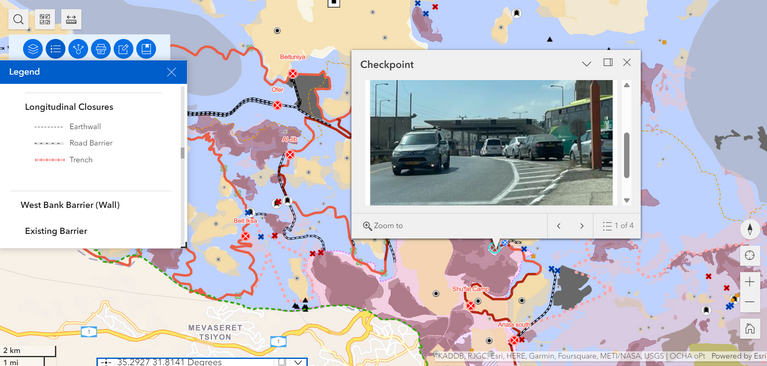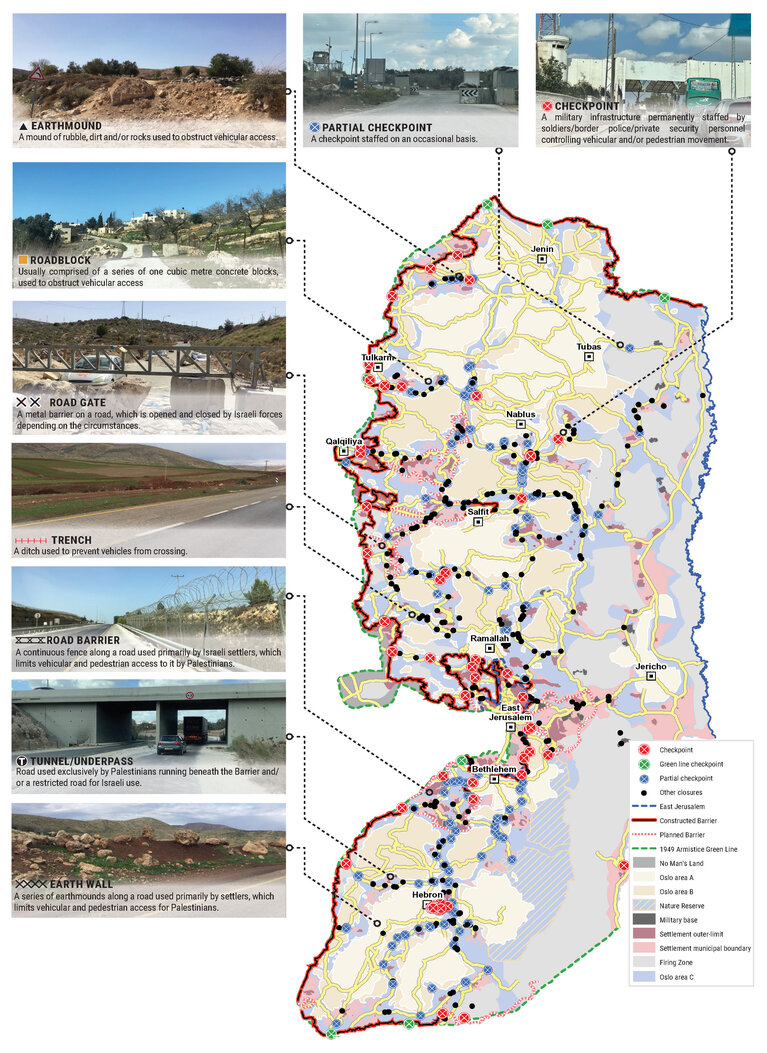UN has documented 645 Israeli movement obstacles within the West Bank
Restrictions on movement deepen humanitarian needs among Palestinians, undermining access to livelihoods and essential services such as health care and education, and have a noticeable psycho-social impact on communities.
An updated mapping exercise by the United Nations reveals that 645 movement obstacles are spread across the West Bank. The UN Office for the Coordination of Humanitarian Affairs (OCHA) has documented an 8 per cent rise in the number of obstacles since its previous survey.
UN’s count includes 49 constantly staffed checkpoints; 139 intermittently staffed checkpoints; 304 roadblocks, earth-mounds and road gates; 73 earth walls, road barriers and trenches; and 80 additional obstacles of various types within the Israeli-controlled area of Hebron (H2).
OCHA has also published an interactive map featuring images and specific data for every documented obstacle.
Out of all the obstacles verified, 339 prevent or restrict access to main roads, city hubs, services, and farmland, with a severe impact on Palestinians. A 712 km Barrier, now 65 per cent built, runs mostly inside the West Bank, and poses a major movement obstacle for people.
Under international law, the Israeli authorities have the obligation to facilitate the free movement of Palestinians within the occupied Palestinian territory, including East Jerusalem, with only certain security-related exceptions recognized. Sections of the Barrier within the West Bank are unlawful, as concluded by the International Court of Justice.
Resources











